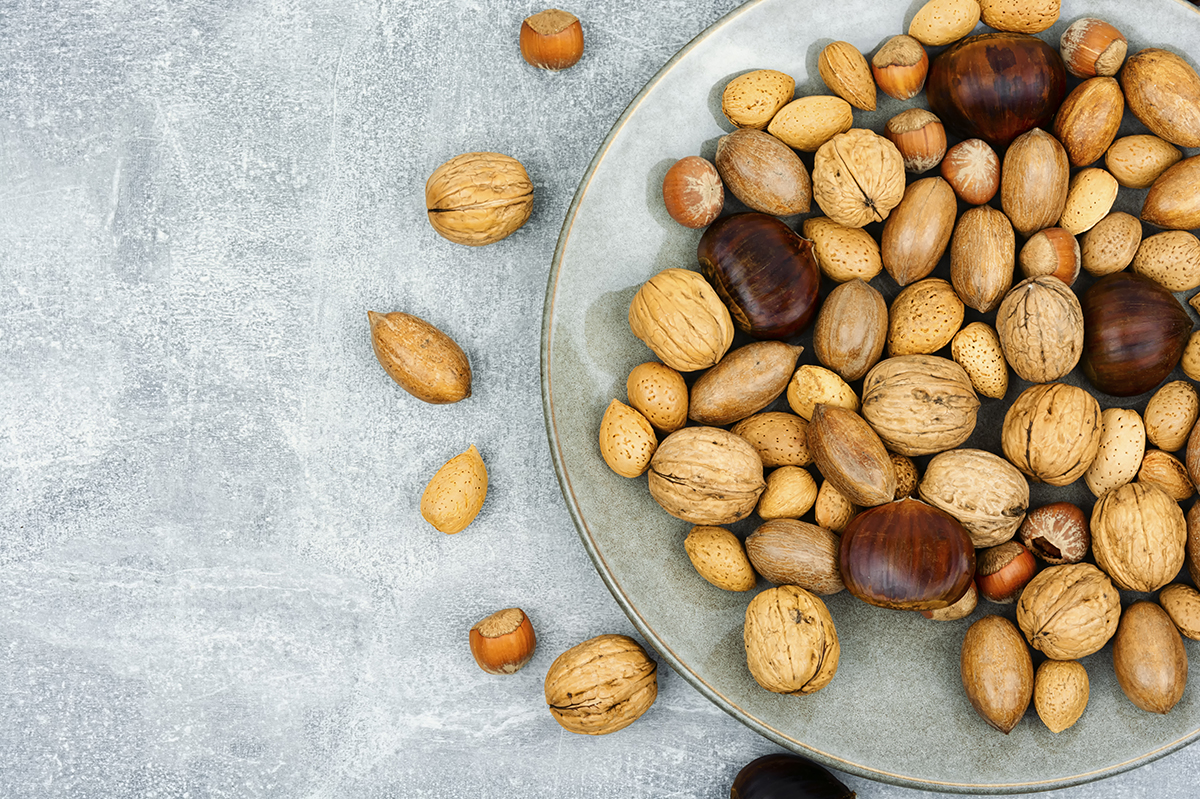The digestive system is a marvel of nature, and fiber plays an integral role in ensuring its smooth operation. As people become more health-conscious, they often wonder, “when to take fiber supplement?” This guide delves deep into the world of fiber, exploring its various facets, benefits, and most importantly, the best timing for its consumption.
Table of Content
- Understanding the Importance of Fiber
- Why Does Timing Matter When Taking Fiber Supplements?
- Identifying the Best Times to Take Your Fiber Supplement
- The Synergy of Fiber with Other Nutrients
- Real-life Case Studies on Fiber Supplement Timing
- Avoiding Side Effects: The Risks of Incorrect Timing
- Frequently Asked Questions about Fiber Supplements
- In Conclusion: Key Takeaways on When to Take Fiber Supplements
Understanding the Importance of Fiber

The Multifaceted Role of Fiber
Fiber is an indomitable force in the realm of nutrition. Often overshadowed by macronutrients like proteins, fats, and carbohydrates, fiber serves as the unsung hero of digestive health and beyond. One might think of it as just roughage that assists in bowel movements, but in truth, its role is multidimensional and indispensable for overall health.
Considering its importance, the question of “when to take fiber supplement” becomes crucial for many seeking to optimize their health. Fundamentally, fiber is a complex carbohydrate that our bodies cannot digest. Found abundantly in plant-based foods such as fruits, vegetables, and grains, it travels through our digestive system largely unchanged, providing a myriad of health benefits along its journey:
Core Health Benefits of Fiber
- Promotion of gut health: Fiber acts as food for the beneficial bacteria in the gut, helping them thrive. A healthy gut microbiota is essential for digestion, nutrient absorption, and immune function.
- Assistance in weight management: Due to its bulky nature, fiber-rich foods provide a feeling of fullness with fewer calories, aiding in weight control and appetite suppression.
- Reduction in cholesterol levels: Certain types of fiber can bind to cholesterol particles and remove them from the body, thus supporting heart health.
- Stabilization of blood sugar levels: Fiber, especially soluble fiber, slows the absorption of sugar, leading to improved blood sugar levels—a boon for diabetics and those with insulin resistance.
Types of Fiber: Soluble vs. Insoluble
Given the broad spectrum of advantages fiber offers, one might wonder if all fibers serve the same purpose. The answer is both yes and no. While the overarching benefits of fiber remain consistent, its types can dictate specific health outcomes.
Fibers, based on their solubility in water, can be segmented into:
- Soluble fiber: As the name suggests, this type of fiber dissolves in water, transforming into a gel-like consistency. This gel form can trap certain food particles, slowing down digestion. It’s particularly effective in lowering cholesterol and modulating blood glucose levels. Prime sources include oats, beans, lentils, apples, and blueberries.
- Insoluble fiber: Defying dissolution in water, this fiber adds bulk to the stool, ensuring regular bowel movements—a godsend for those grappling with constipation. It’s predominantly found in foods like whole grains, nuts, beans, cauliflower, and green beans.
Conclusion
Understanding these variations is pivotal, especially when tailoring dietary choices to address specific health concerns. As science progresses, the multifaceted virtues of fiber are being unfurled more than ever, emphasizing its cardinal role in a balanced diet.
Why Does Timing Matter When Taking Fiber Supplements?
Digestion, as a physiological process, is much like a well-orchestrated dance. Various components play specific roles at different times to ensure that the food we eat is efficiently processed. Amid this dance, fiber stands out due to its non-digestible nature, acting as both a moderator and a facilitator. Just as with any regimen, the timing of when to take fiber supplement is of paramount importance in harnessing its benefits to the fullest.
The Dynamic Role of Fiber in Digestion
Unlike other nutrients which get broken down and absorbed, fiber remains relatively intact as it moves through our digestive system. This characteristic allows it to perform tasks that other nutrients can’t. From bulking up stool to feeding beneficial gut bacteria, fiber plays diverse roles that underscore its importance.
The Significance of Timing
While it’s essential to incorporate fiber into our diet, understanding the best time to take a fiber supplement can make a world of difference. Its effects are not just confined to the digestive tract; they ripple across various aspects of our health:
- Boost energy levels when taken in the morning: Starting the day with a fiber supplement can provide a steady source of energy. Soluble fiber, in particular, can slow the absorption of sugar, leading to a steady release of energy and preventing those dreaded mid-morning slumps.
- Help in weight management when consumed before meals: Fiber has an exceptional ability to create a feeling of fullness, which can help curb overeating. When taken before meals, it can swell in the stomach, leading to a reduced calorie intake. This is especially beneficial for those looking to shed some pounds or maintain their current weight.
- Facilitate overnight digestion when taken in the evening: Consuming fiber supplements in the evening can aid in smoother bowel movements the next day. Since our bodies go into a state of repair and detoxification at night, the presence of fiber can assist in eliminating waste products more efficiently.
Striking the Right Balance
While the advantages of fiber are manifold, it’s essential to strike a balance. Consuming it at the right time ensures that we can optimize its benefits without overburdening our digestive system. Moreover, it’s also vital to pair fiber intake with adequate hydration. Water acts as a catalyst, helping fiber do its job more effectively. Remember, like all things, moderation and timing are key.
Identifying the Best Times to Take Your Fiber Supplement

The best time to take a fiber supplement is often aligned with one’s individual health goals:
- Morning Intake: A fiber supplement with breakfast can kick start your digestive system, ensuring consistent energy throughout the day.
- Pre-meal Consumption: Taking fiber 30 minutes before meals can help you feel fuller, reducing overall food intake and assisting in weight management.
- Evening Dose: A dose before bedtime can support the digestive process overnight, ensuring you wake up feeling light and refreshed.
The Synergy of Fiber with Other Nutrients

In the vast orchestra of nutrition, every nutrient plays a unique tune. However, when certain nutrients collaborate, their collective impact can be greater than the sum of their individual effects. Fiber, renowned for its digestive benefits, becomes even more potent when paired with specific nutrients. The chemistry between fiber and these nutrients can amplify the health benefits each offers, leading to a more harmonious physiological performance.
Fiber and Probiotics: Allies for Gut Health
Fiber’s relationship with probiotics is akin to that of fuel and an engine. Probiotics, the beneficial bacteria that reside in our gut, thrive on the sustenance provided by certain types of fiber, often referred to as prebiotics.
- Feeding these bacteria with fiber-rich foods or supplements can help bolster their numbers and activity. This, in turn, can enhance digestive efficiency, boost immune function, and even positively impact mental health.
- Examples of prebiotic fibers include inulin, fructooligosaccharides, and galactooligosaccharides, which are abundant in foods like garlic, onions, and asparagus.
Combining Fiber with Healthy Fats: A Recipe for Satiety
While fiber is lauded for its capacity to induce fullness, its satiating effect can be magnified when combined with healthy fats.
- Healthy fats, such as those found in avocados, flax seeds, or olive oil, can slow down the emptying of the stomach. This, combined with fiber’s bulking property, can prolong the feeling of fullness, leading to reduced food intake and aiding weight management.
- Moreover, the duo can regulate the release of glucose into the bloodstream, ensuring stable energy levels and reduced cravings.
Hydration: The Catalyst in Fiber’s Function
Water is to fiber what a catalyst is to a chemical reaction. It facilitates and augments fiber’s functions, ensuring that it works optimally.
- When fiber is consumed, it absorbs water, swells, and forms a gel-like consistency. This process aids in softening stools, ensuring smoother bowel movements.
- Moreover, adequate water intake can mitigate the risk of side effects that sometimes come with increased fiber consumption, such as bloating or gas. It helps in averting potential constipation, emphasizing the need to hydrate alongside increasing fiber intake.
Conclusion
Understanding these synergies is crucial for anyone looking to optimize their health through nutrition. Pairing fiber with the right nutrients, and ensuring adequate hydration, can maximize the health benefits one derives from their diet.
Real-life Case Studies on Fiber Supplement Timing
While the science behind the benefits of fiber supplements is solid, real-life experiences bring these benefits to life, making the information tangible and relatable. Let’s delve into the stories of a few individuals and how the timing of fiber supplements made a difference in their lives.
Case Study 1: Jane’s Journey to Sustained Energy
Jane is a 40-year-old executive working in a high-pressure corporate environment. She often found herself battling energy lags, especially post-lunch. This not only affected her productivity but also led her to rely heavily on caffeine and sugary snacks. Acting on the advice of a nutritionist, Jane started incorporating a fiber supplement into her breakfast routine. The outcome was remarkable. Within weeks, Jane noticed that she had sustained energy levels throughout the day, and her post-lunch slump was significantly reduced. Additionally, she felt fewer cravings, enabling her to make healthier food choices and cut down on her caffeine intake.
Case Study 2: Ravi’s Athletic Advantage
Ravi is an ambitious triathlete with a rigorous training regimen that demands consistent energy and a healthy digestive system. Even with a balanced diet, Ravi faced occasional digestive inconsistencies. To further optimize his nutrition and support his athletic goals, Ravi began consuming a fiber supplement 30 minutes before his primary meals. The change was transformative. Ravi’s digestion improved significantly, and the fiber supplement ensured a steady release of energy, essential for his demanding workouts. Furthermore, he found that he had better control over his appetite, which helped him maintain the strict diet required for his athletic performance.
Case Study 3: Maria’s Solution to Midnight Snacking
Maria, a freelance writer in her late 20s, often found herself giving in to the lure of midnight snacks. Even after a filling dinner, she felt hungry late at night, leading her to develop unhealthy snacking habits. After researching the potential benefits of fiber for satiety, Maria decided to incorporate a fiber supplement with her evening meal. The results were nothing short of impressive. With the inclusion of the fiber supplement in her dinner, Maria felt fuller for longer periods, effectively reducing her midnight snacking tendencies. This not only supported her in maintaining a healthier weight but also improved her sleep quality, as she refrained from consuming heavy snacks just before sleeping.
In conclusion, as we glean from the diverse experiences of Jane, Ravi, and Maria, the timing of fiber supplement intake can be tailored to cater to specific individual needs and lifestyles, reinforcing the importance of understanding when to take fiber supplements.
Avoiding Side Effects: The Risks of Incorrect Timing
![]()
Fiber, undoubtedly, plays a pivotal role in maintaining digestive health, supporting weight management, and offering numerous other benefits. However, as with many dietary components, it’s essential to understand that there’s a right and wrong time for consumption. Incorrect timing or intake without considering other dietary components can result in some unwanted side effects. Let’s delve deeper into the potential challenges one might face due to mis-timed fiber supplementation.
Bloating or Gas Post-Meals
One of the primary concerns associated with taking fiber supplements after meals is the potential for bloating and gas. When fiber supplements are consumed after a heavy meal, they can ferment in the digestive tract. This fermentation process produces gas, leading to feelings of discomfort, bloating, and even pain. Ideally, fiber supplements should be taken before meals to avoid this issue and to provide a feeling of fullness that can deter overeating.
Risk of Constipation without Adequate Hydration
Fiber supplements can be a double-edged sword if not paired with sufficient water intake. While they can promote regular bowel movements, without enough hydration, they can absorb water from the intestines, leading to hard stools and constipation. It’s crucial to increase water intake proportionally when upping your fiber intake, ensuring the fiber can do its job effectively without causing digestive issues.
Interference with Nutrient Absorption
Fiber has the potential to bind with certain minerals and hinder their absorption. When consumed alongside mineral-rich foods such as spinach, dairy, or fish, there’s a risk that essential nutrients like calcium, magnesium, or zinc might not be effectively absorbed. This doesn’t mean one should avoid combining fiber-rich foods and mineral-rich foods altogether. However, when taking concentrated fiber supplements, it’s advisable to space out the intake from major meals to ensure optimal nutrient absorption.
In conclusion, while the advantages of fiber supplements are manifold, it’s essential to approach their intake with knowledge and caution. Paying heed to timing and other dietary considerations can ensure you reap the benefits of fiber without any undesirable side effects.
Frequently Asked Questions about Fiber Supplements
Fiber supplements are becoming increasingly popular, and with that rise in popularity come many questions about their usage, benefits, and potential drawbacks. Here are some commonly asked questions to provide clarity on the subject:
Q1: Can I take fiber supplements with medications?
A: It’s essential to be cautious when combining fiber supplements with medications. Fiber can potentially interfere with the absorption of certain medicines, reducing their efficacy. This is particularly true for medications taken for heart disease, diabetes, and some antidepressants. If you are on medication, always consult your physician before introducing a fiber supplement to your diet.
Q2: How much fiber should one intake daily?
A: The recommended daily intake of fiber for adults is between 25-30 grams, derived from a combination of foods and supplements. This recommendation ensures optimal digestive health and other associated benefits. However, factors such as age, gender, physical activity, and individual health conditions can influence the amount of fiber one might need. It’s always a good idea to seek advice from a nutritionist or doctor to determine the best intake for your specific circumstances.
Q3: Can children take fiber supplements?
A: Children, just like adults, can benefit from the right amount of dietary fiber, which aids in digestion and promotes overall gut health. However, it’s crucial to differentiate between fiber obtained from natural food sources and that from supplements. While fiber-rich foods like fruits, vegetables, and whole grains should be a part of a child’s regular diet, it’s essential to consult with a pediatrician before introducing fiber supplements. They can provide guidance on the appropriate type and amount if deemed necessary.
Q4: Are there natural ways to increase fiber intake without supplements?
A: Yes, numerous foods are rich in dietary fiber. Incorporating whole grains, beans, lentils, fruits, and vegetables into your diet can substantially increase your fiber intake. Foods like oats, barley, broccoli, apples, and flax seeds are particularly high in fiber. By making a conscious effort to include these foods in daily meals, one can often meet fiber needs without turning to supplements.
Q5: Can I take fiber supplements during pregnancy?
A: Digestive issues like constipation are common during pregnancy, and fiber supplements can offer relief. However, as with all supplements and medications during pregnancy, it’s essential to consult with an obstetrician or healthcare provider. They can recommend a safe dosage and ensure it doesn’t interfere with prenatal vitamins or any other medications you might be taking.
In conclusion, while fiber supplements offer a convenient way to meet daily fiber needs, it’s vital to approach their usage with knowledge and understanding. Always prioritize natural food sources and consult healthcare professionals before making significant changes to your diet or introducing supplements, especially when combined with medications or during specific life stages like pregnancy.
In Conclusion: Key Takeaways on When to Take Fiber Supplements
As we’ve navigated the vast landscape of fiber supplements, it’s evident that they serve as more than just an aid for digestion. Their role in our health ecosystem is multifaceted, impacting various aspects of our well-being. Here are some crucial points we’ve uncovered in our exploration:
The Multifaceted Role of Fiber
Fiber supplements don’t just aid in digestion. They play a part in weight management, regulating blood sugar, reducing cholesterol, and even ensuring sustained energy levels. By understanding these roles, one can better appreciate the need for consistent fiber intake.
Timing is Everything
The adage “timing is everything” couldn’t be more apt when considering fiber supplements. Whether it’s to boost morning energy, aid in weight management by consuming before meals, or support overnight digestion, the time you take your supplement can dictate its effectiveness. By being mindful of when you introduce fiber into your system, you can maximize its benefits and minimize potential discomfort.
Consider Natural Sources
While supplements are a convenient way to ensure adequate fiber intake, especially for those with dietary restrictions or specific health conditions, they should ideally complement a diet already rich in natural sources of fiber. Foods such as fruits, vegetables, whole grains, and legumes should form the backbone of our fiber intake.
Always Seek Expertise
Every individual is unique, and so are their health needs. It’s paramount to remember that self-medication, even with something seemingly harmless like fiber supplements, can lead to unintended consequences. Always consult with a healthcare provider or nutritionist, especially when considering the addition of supplements to your regimen.
In wrapping up our discussion, it’s clear that fiber supplements can be transformative for our health. However, their potential is truly unlocked when consumed thoughtfully, with an understanding of their nuances. As with all health-related endeavors, education, mindfulness, and expert consultation are the pillars to ensuring optimal benefits.







